- Home
- Winston Groom
The Allies Page 15
The Allies Read online
Page 15
During the first weeks of the war, the Germans crushed their way through Belgium and across France toward the ultimate prize: Paris. But on its doorstep, they were halted. One of five German armies failed to meet its mission and was cut off by a French army hastily pulled together by moving soldiers from the city to the battlefront in convoys of Paris taxicabs. The British had sent its expeditionary force of about one hundred thousand professional soldiers—the “Tommys” of Rudyard Kipling’s imagination—into the fray. As the German drive stalled, they fought a series of vicious running battles in the north of France and into Belgium to prevent the Germans from seizing the channel ports that were the lifeline to England. This was the so-called Race to the Sea.
Afterward, the war settled down to opposing lines that ran from Ypres, in southwest Belgium, to the Swiss border nearly five hundred miles away. The opposing armies began to dig in. Trench warfare bogged down the war for the next four years and killed almost 8 million soldiers on both sides, including more than seven hundred thousand British: the “flower of its youth,” the poets said.
Churchill was appalled. He had visited the front a number of times, including when he had personally endeavored to save the Belgian port Antwerp with his vaunted naval brigade. This occurred in the early days of the war, before the German setback at Paris. As early as 1906, Churchill had warned that Antwerp was a critical strongpoint in case of a German attack and should be defended at all costs.
Scarcely two weeks into the war, in the face of the German onslaught, the king of the Belgians had pulled his battered five infantry divisions into the fortresses outside Antwerp and defied the two German corps of ninety thousand men for the next three months. The Belgian action removed these men of the German First Army from the Schlieffen plan’s critical right wing, which failed to take Paris. However, daily blasting of the Belgian forts by German high-explosive artillery was slowly reducing them to heaps of brick dust. The crisis came to a head on August 30 when the Belgians let it be known they were moving their government, documents, and valuables to England. The British ambassador wired that Antwerp would fall in a matter of days.
Kitchener was now thoroughly alarmed that if Antwerp fell other channel ports would as well, opening the door for a German invasion of England. The prime minister was away, but Kitchener and the British foreign minister, Lord Grey, summoned Churchill to an emergency meeting. Churchill suggested sending in the Royal Marines, as well as six thousand inexperienced men of the Admiralty’s Naval Division, to help relieve Antwerp. He volunteered to go there himself and survey the situation, reporting back by phone and telegraph.
Churchill headed for Antwerp on the next boat, but not in the role of a noncombatant “observer,” as had been intended. Instead he seized personal command of not only his brigade of naval forces but the Belgian troops as well, the king of the Belgians notwithstanding. “He dominated the whole place—the King, ministers, soldiers, sailors,” wrote a friend to Prime Minister Asquith. “So great was his influence that I am convinced that with 20,000 British troops he could have held Antwerp against almost any onslaught.”
The arrival of Churchill’s Allied troops heartened the embattled Belgians, soldiers and citizens alike—and when the Germans again attacked, the Royal Marines threw them back. An Italian war correspondent spotted Churchill watching the battle standing on a parapet “in a rain of shrapnel…enveloped in a cloak and wearing a yachtsman’s hat and tranquilly smoking a long cigar.
“It would not be easy,” continued the correspondent, “to find in all Europe a Minister who would be capable of smoking peacefully under that shellfire. He smiled and looked quite satisfied.” The “bucking up” that Churchill gave the Belgians, according to Asquith, encouraged them to “give up their idea of retreat…and to hold Antwerp as long as they can.”11
The Germans, however, continued their assault and their shelling with huge 17-inch howitzers mounted on railcars. The guns lobbed 1,500-pound shells—“the size of a full-grown hog”—that atomized the thick masonry forts. At last, Churchill threw into the forward trenches his six thousand half-trained and untested “stokers, sailors, scholars, and musicians” of the Naval Division. This force included the Oxford-educated Rupert Brooke, the most well-known young English poet of his day and a brand-new lieutenant, who, after watching the fighting for more than a week, was inspired to write this famously patriotic verse:
If I should die, think only this of me
That there’s some corner of a foreign
field That is forever England.*
The Germans were not to be denied. A large relief force of British soldiers was on its way to reinforce Antwerp but was held up by heavy German opposition. By the time reinforcements arrived the situation had reversed itself. With the Belgian army “in complete exhaustion and imminent demoralization,” the British commander, a lieutenant general who had taken over from Churchill, ordered a general retirement to the inner line of forts and then evacuation by sea.
The retirement itself was a nightmare of slogging through the besieged and bombarded city of Antwerp that was, according to Brooke, “like several different kinds of hell; the broken houses and dead horses lit by an infernal glare. The refugees were the worst sight. The German policy of frightfulness [“terror” in today’s language] had succeeded so well that out of that city of half a million, not ten thousand would remain.”
Brooke goes on to describe the horrors brought by the bombardment—things on fire or blown to bits, bodies in the street, old men weeping, terrorized women and children. “It’s queer,” he wrote, “to think one has been a witness to one of the greatest crimes of history. Has a nation ever been treated like that?”12
The answer, of course, is that throughout history a great many nations have been treated that way, from the depredations of Alexander the Great to the Sack of Rome. It’s just that Rupert Brooke was not there to witness it. His compassion for the Belgians had quite remarkably turned him away from the skepticism of his socialism and atheism into an altruistic young Englishman, willing to fight and die for what many suddenly believed was the noblest cause since the Crusades. The war had a similar effect on a great many young English intellectuals and members of the wealthy classes, who were soon fighting and dying in extraordinary numbers on the fields of France and Flanders.13
Contrast this with the feelings of another young patriot on the German side, a twenty-five-year-old struggling artist and sometime political activist named Adolf Hitler. On the day Germany declared war, he was among the huge throng gathered in the Munich town square to celebrate. A subsequent enlargement of a photograph taken that day pinpoints Hitler, grinning and passionate-eyed and “overpowered by stormy enthusiasm,” as he wrote in his book Mein Kampf (My Struggle). “I fell down on my knees and thanked Heaven from an overflowing heart,” he wrote, “for granting me the good fortune of being permitted to live at this time.”
Hitler was not unlike the millions of raw recruits, many mere schoolboys, who crammed the German recruiting stations at the beginning of the war. Unlike Rupert Brooke, who saw his duty as a champion of the abused Belgians, Hitler wrote to his landlord that he actually “hoped to get to England.” As his biographer Ian Kershaw bluntly points out, “The war made Hitler possible.”14
The unhappy withdrawal from Antwerp and its capture by the Germans was widely reported in the press. The Conservative newspapers immediately blamed Churchill, although he was not in charge then and had nothing to do with its capitulation. His friend and frequent correspondent Violet Asquith, daughter of the prime minister, called it “a savage and venomous campaign.” The press questioned why Churchill—whose title was first lord of the Admiralty—was in Antwerp in the first place, conducting an infantry operation. “We suggest to Mr. Churchill’s colleagues that they should quite firmly and definitely tell the First Lord that on no account are the military and naval operations to be conducted or directed by him,” one p
aper admonished.
In retrospect, it turned out that the stubbornness of the Belgians and the British at Antwerp was responsible for the Germans’ failure to quickly end the war by taking Paris. The British Official History of the war described the Allied resistance at Antwerp as having a “lasting influence on operations” by keeping the ninety thousand German troops occupied there, and not joining the German First Army in the critical Battle of the Marne where it was defeated. But this conclusion was reached only in retrospect. Churchill shouldered the blame for the loss of Antwerp through the rest of the war, gaining a reputation for being impetuous.
* * *
ONE OF THE THINGS CHURCHILL had seen at Antwerp, however, convinced him that the war was being fought the wrong way. Both sides had entrenched themselves along this impossible line from the North Sea to the Swiss Alps, with a hellish no-man’s-land in between. With combined artillery and machine-gun fire, attacks to break the line were rarely successful, and the casualties were horrendous. Every day, the Germans made their line stronger, with their defense “in depth”—meaning that once attacking troops overran the first line, the exhausted and depleted soldiers then faced a second line, equally strong, and a third, and even a fourth. Churchill feared it would soon become impregnable, and the Allies would bleed themselves white trying to crack it. (There were a million British casualties in the first three months of the war.)
However, he had a plan, and he sent it in a letter in early 1915 to Prime Minister Asquith, who thought it had merit. Both Churchill and Maurice Hankey, secretary to the war cabinet, reached the conclusion that an attack on the German ally Turkey at the Dardanelles—the narrow stretch of water from the Aegean Sea that led to the Black Sea—would permit the Allies to conquer Constantinople, the Turkish capital,*2 and knock Turkey out of the war. Kitchener signed on to the idea almost immediately, after receiving an urgent request from the commander of the Russian army begging for an Allied attack on Turkey to draw off Turkish armies that were threatening a breakthrough in the Russian Caucasus.
Churchill envisioned a purely naval operation, using a number of obsolete battleships to force the strait and bombard Constantinople into submission. With Turkey out of the war, Allied forces could get at Austria-Hungary through the “back door” and cause Germany to fight a three-front war.*3 But Churchill’s first sea lord Jacky Fisher insisted on including a seventy-five-thousand-man expeditionary force to land on the Gallipoli Peninsula at the northern end of the strait to overcome and secure a series of Turkish forts that lined the sides of the strait with dangerous artillery.
The battleship fleet, which also included ships from the French navy, attempted to force the Dardanelles in March 1915, but the Turks had mined the strait and several vessels were sunk. Another Allied attempt was turned back by fierce gunfire from Turkish shore batteries aimed at smaller boats attempting to clear the mines. There was a great deal of indecision on the part of the British naval command. Part of it was due to the severe penalties imposed in peacetime by the Admiralty on captains losing their ships. The very idea of having one’s ship damaged or sunk was enough to deter some commanders from going into harm’s way; the British admiral at the Dardanelles was apparently one of these. After more foiled attempts and a spell of bad weather, Fisher recalled the ships and the mission was scrubbed.15
Churchill was bitterly disappointed at the navy’s failure to force the Dardanelles—and at Fisher for calling off the effort—but did not attempt to override the first sea lord. The war cabinet, and various committees of the departments, dithered about what to do next. Kitchener was against dispatching the seventy-five-thousand-man army corps on the grounds that it was unsound military principle to divide one’s forces (and in any case he could not spare any men from the Western Front). At last, it was decided that a British infantry division, a number of detached brigades and battalions, and a large force of Australians then training in Egypt for the Western Front would be diverted to invade Gallipoli. The French contributed eighteen thousand infantrymen to the enterprise. The hope was that they could quickly clear the peninsula of Turkish opposition, which would allow the naval assault to proceed.
First Sea Lord Fisher then got cold feet and sent around a secret paper saying he was now against the plan to send troops. But it was too late. Too many people had signed on, and the grim war machine had been set into motion. A rift developed between Fisher and Churchill just as many (including the king) had predicted: two iconoclastic personalities now created high-powered friction. Churchill thought Fisher was becoming senile, while Violet Asquith, a perceptive political observer in her own right, thought he was mad.16
By now the Turks were fully alarmed at the Allied attempts to force the Dardanelles. They brought a sizable army to defend the peninsula including a canny German adviser named Otto Liman von Sanders, who thoroughly understood the magnitude of the problem. Thus the Allies were given a hot reception when the invasion force arrived.
The Gallipoli Peninsula is ringed by high clay cliffs that the soldiers ascended with great difficulty, only to be met at the top by withering machine-gun fire punctuated by enormous artillery barrages. As a result, none of the five landing parties reached their objectives that first day. As had quickly developed on the Western Front in France and Belgium, modern weaponry dictated that the Gallipoli soldiers dig in: at first by scraping out shallow holes to escape the gunfire, which in time turned into an elaborate trench system. A deadly stalemate ensued as the Allies threw in more men, only to incur more casualties. The Germans sent more machine guns, the Turks sent more men. It soon got back to Britain that the situation was critical.
At this, Fisher began going around to members of Parliament blaming Churchill for the mess—never mind that it was his idea in the first place to land troops. But Churchill’s name had become so identified with the enterprise that everyone, including the press, gave him ownership of it. Fisher resigned, publicly, putting Churchill in a precarious situation. Almost simultaneously, because of dissatisfaction over the course of the war, the political parties organized into a “National Government,” a coalition of Tories and Liberals. The Tories, however, had never forgiven Churchill’s defection from the party and were anxious for a reason to have him step down. This was it. Churchill’s friend Asquith was still prime minister, but the pressure to fire the first lord was too great. It was either that or lose the coalition. Asquith sent Churchill a little red box containing a note in which he had asked every minister to place his resignation in his hand.
Churchill was magnanimous in his reply, but it was a crushing blow. For four years, he had dedicated his whole being to the Admiralty, developing the naval flying service, recruiting the Naval Division that at that hour was playing its part in the Gallipoli battle, crafting each year the naval estimates, and building Dreadnoughts and all manner of other ships. He was also instrumental in the development of tracked armored “land ships,” which would later become known as tanks.
He had been a minister, one of the elite, a man of great substance and respect. Now, like his father, he was forced to resign in disgrace. He told his friend Violet Asquith that for a few hours his thoughts were suicidal; then they turned merely to sorrow. Years later, his wife told one of his biographers she actually thought he’d die from grief.17
*1 Six months later Rupert Brooke was dead, slain not by a bullet but by an infectious mosquito that bit him on the way to Gallipoli, where he very likely would have been killed anyway.
*2 Now renamed Istanbul.
*3 Turkey had no warships to match Great Britain. It had ordered two Dreadnoughts that lay in British shipyards when war broke out and the British confiscated them.
CHAPTER SIX
Rotten times lay ahead for Churchill in the wake of his resignation in the fall of 1915. The weeks and months passed indifferently while he contemplated his fate. He and Clementine had rented a country farmhouse in Surrey along with
his brother Jack and sister-in-law Gwendoline (or “Goonie”), yet black despair hovered around Churchill like a pall. Then one morning he wandered into the garden to find Goonie at her palette and easel, paintbrush in hand. “I would like to do that,” Churchill remarked, and Goonie happily lent him her paints.
He took to it immediately, and in typical Churchill style he ordered the finest accoutrements of artistry and sought someone to instruct him. This turned out to be a neighbor, the painting master Sir John Lavery. Soon, Churchill was painting morning, noon, and night. As one of his biographers has written: “He discovered, as other sensible people have done, that painting is not only the best of hobbies, but a sure refuge in time of trouble—for while you are painting you can think of nothing else.”1
Painting became a restorative tonic for Churchill, and he excelled at it for the rest of his life, turning out canvas after canvas of bright, colorful oil landscapes around the Surrey countryside. Most he gave away to friends, but one in particular startled the British art world. In 1925, a three-man committee of the most prestigious figures in British art awarded a prize for the best anonymous painting by an amateur. Churchill had submitted “Winter Sunshine” and had won first place. Not only was the committee astonished that the work was made by an amateur, but imagine the members’ surprise when they discovered who had painted it!

 El Paso
El Paso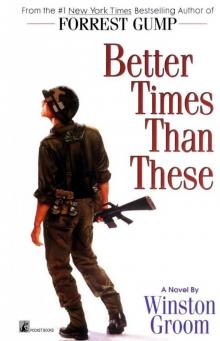 Better Times Than These
Better Times Than These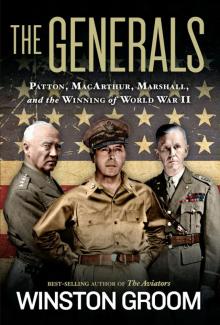 The Generals
The Generals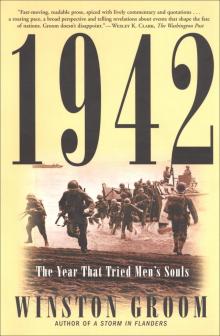 1942: The Year That Tried Men's Souls
1942: The Year That Tried Men's Souls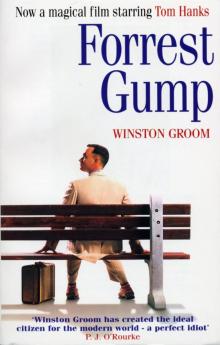 Forrest Gump
Forrest Gump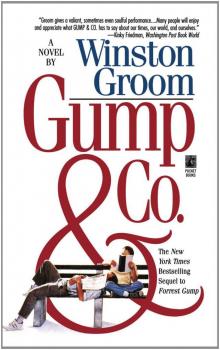 Gump and Co.
Gump and Co.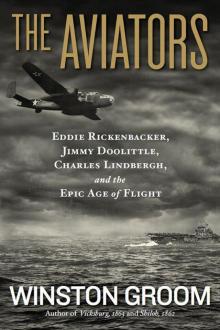 The Aviators
The Aviators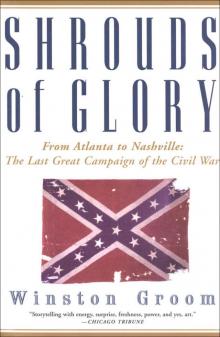 Shrouds of Glory
Shrouds of Glory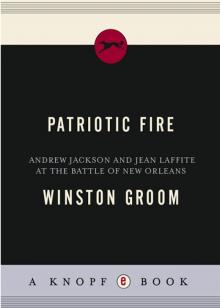 Patriotic Fire
Patriotic Fire Kearny's March
Kearny's March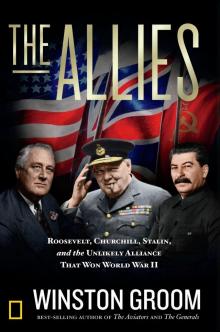 The Allies
The Allies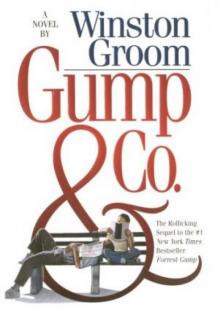 Gump & Company fg-2
Gump & Company fg-2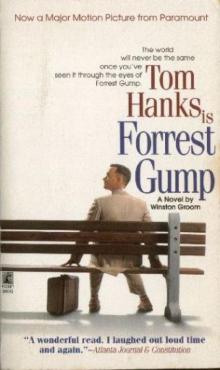 Forrest Gump fg-1
Forrest Gump fg-1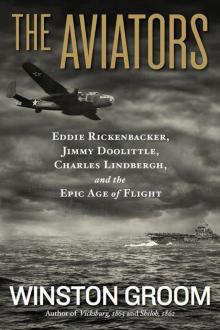 The Aviators: Eddie Rickenbacker, Jimmy Doolittle, Charles Lindbergh, and the Epic Age of Flight
The Aviators: Eddie Rickenbacker, Jimmy Doolittle, Charles Lindbergh, and the Epic Age of Flight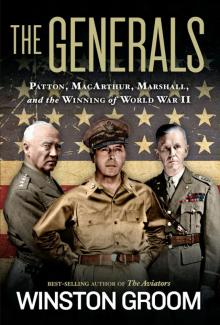 The Generals: Patton, MacArthur, Marshall, and the Winning of World War II
The Generals: Patton, MacArthur, Marshall, and the Winning of World War II